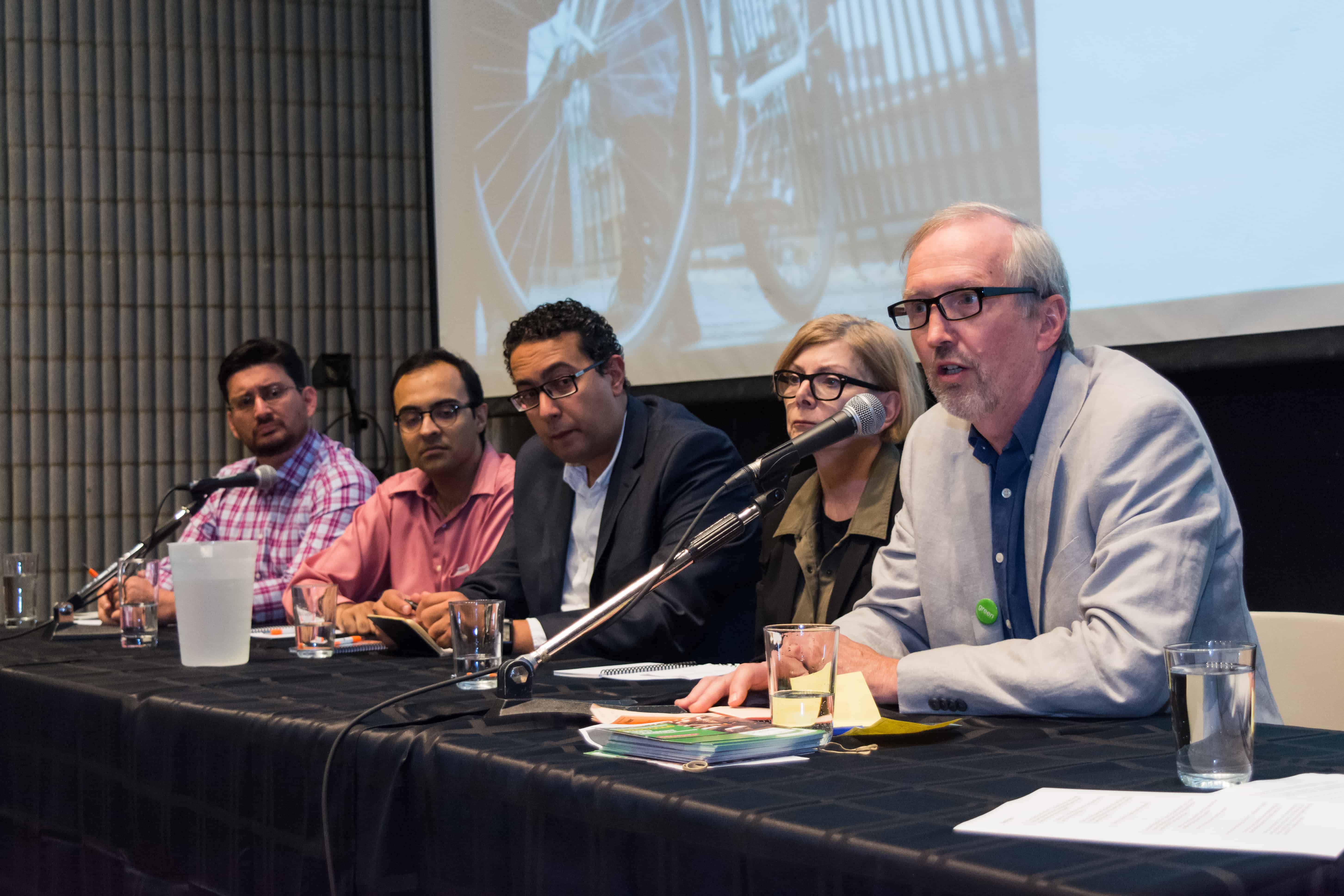TTC criticism, alternatives for transportation funding, and student transit were the topics of conversation at an October 20 panel regarding transit in Ontario. The panel included New Democratic Party MPP Cheri DiNovo of Parkdale—High Park, the Green Party of Ontario’s Transportation Critic Tim Grant, Dr. Ehab Diab of the University of Toronto Transportation Research Institute, Suhali Barot of transit advocacy group TTCriders, and Moaz Ahmed of transit advocacy group CodeRedTO.The event was organized by the University of Toronto Students’ Union (UTSU), in line with its U-Commute campaign with Ryerson University, George Brown College, and OCAD University
DiNovo said that the TTC should consider important changes, including providing its services for free. “Make it at least seniors free, people on social assistance free, people with disabilities of all sorts free, and that’s the very least. I think that the aim should be that everyone should travel for free. The service is a necessity, it is not a luxury.”
The TTC was recently named the best public transit agency in North America by the American Public Transportation Association, largely for its ambitious “five-year modernization plan” the strives to improve many aspects of the TTC, such as public safety, employee relations, financial stability, and public reputation.
Grant highlighted more of what he perceived to be shortcomings by the TTC, such as riders contributing 76 per cent of operating costs, “the highest in North America.” He also implied that its current troubles have been caused by ineffective spending on major transit projects in the last 30 years. Barot criticized the elevated cost of transit and explained that a low-income transit pass is “extremely important in a city where a third of the people make minimum wage.”
With regard to funding alternatives for provincial transportation projects, Grant opined that road tolls are a win-win for both public transit and drivers. On the contrary, DiNovo proposed a “progressive taxation” solution, which would mean taxing large corporations “a little bit more,” seeing as Toronto has “the lowest corporate tax rate of any jurisdiction in North America.” She also hinted that the cost of operating future transit systems could be handled by public-private partnerships.
Free or partially funded student transit was both endorsed by Grant and DiNovo. “The province can show real leadership here by providing a free transit for students, which would be ideal… The province can be somewhat of a facilitator, and if not free, at least pay 50 per cent of the cost of student transit,” said Grant.
DiNovo, who will not seek re-election next year, also stated the importance of student participation in getting cheap transit. “It really requires you to be active and noisy … there’s two elections coming up this year: there’s an election in June, provincial, there’s an election next fall in 2018 for the municipal. If you care about this issue, make sure you know where your candidates stand on it and their parties and make sure that you are there at the all-candidates meeting for [them] to answer questions about your transit.”
The panel was preceded by a presentation of the Draft 2041 Regional Transportation Plan by Metrolinx Director of Regional Planning Antoine Belaieff, which contained the planning decisions required to accommodate transportation growth for the next 25 years in the Greater Toronto and Hamilton Area (GTHA). Belaieff mentioned the challenges currently facing the provincial transportation system, such as the fast-growing population of the GTHA areas and the backlog of investment in the project.


